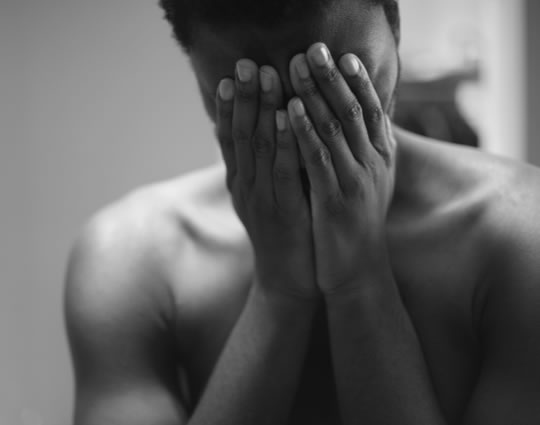Jobs with highest depression rates, herbs that beat antidepressants, the four types of depression and more…
Below are some of the latest findings from psychological research on depression.
(For those of you interested in my ebooks — currently on motivation and anxiety — you might like to know I am now working on a new ebook on depression. More news on this to follow…)
1. Jobs with highest depression rates
Bus drivers top the list of occupations with the highest depression rates.
They are closely followed by real estate agents and social workers.
What do these — and the other jobs with the highest rates of depression — have in common?
It’s dealing with the public, as the study’s authors explain:
“…service industries which require frequent or complex interactions with the public or clients are disproportionately represented…
This supports the theory that the stress of emotional labor could contribute to depression.”
2. Forgetting how to be happy
People who are depressed can’t imagine what it’s like to not be depressed.
It is as though they have forgotten what it is like to be happy.
However, non-depressed people can imagine what it is like to be depressed — they seem to recall the state more clearly.
Ms Constance Imbault, the study’s first author, said:
“It’s not that people with depression aren’t capable of feeling like someone who’s not.
People don’t start out being depressed – it’s that they’ve lost the ability to feel emotion altogether.
They’re apathetic.”
3. Saffron beats antidepressants
Extract of saffron, the exotic spice, is a safer alternative to pharmaceutical antidepressants in mild to moderate depression, recent studies find.
Saffron has fewer side effects and is just as effective in some cases.
The conclusions come from a review of six separate studies that included 230 clinically depressed patients.
All the studies were high-quality randomised controlled trials — although they were small.
4. There are 4 types of biological depression
Four types of depression have been newly identified by researchers using brain scans.
The brain scans revealed distinctly different types of brain activity in each sub-type.
The four different types of depression they identified are:
- Biotype 1 is characterised by anxiety, insomnia, and fatigue.
- Biotype 2 is characterised by exhaustion and low energy.
- Biotype 3 is characterised by an inability to feel pleasure as well as slowed movements and speech.
- Biotype 4 is characterised mostly by anxiety with insomnia along with the inability to feel pleasure.
5. Generalised goals
People who are depressed tend to use more generalised goals than others.
They tend to have goals such as: “I want to be happy.”
The problem with general goals is that they are difficult to achieve
6. Cause of depression in the brain
A part of the brain linked to disappointment at not receiving a reward has been linked to depression by a new study.
The area, called the lateral orbitofrontal cortex, normally becomes active when people fail to get a reward they were expecting.
In people who were depressed, this area was more strongly linked to other areas involved in our sense of self and personal loss.
In other words: depressed people are more likely to suffer self-esteem issues and a feeling of loss if they don’t get the rewards they are expecting.
7. Vitamin D deficiency
Vitamin D deficiency is linked to depressive symptoms and more negative thoughts, new research finds.
Vitamin D deficiency is also linked to cognitive impairments in young people.
Foods that have high levels of vitamin D include oily fish and eggs but most people get their vitamin D from the action of sunlight on the skin.
8. Why antidepressants don’t work for 50%
It is well-known that common antidepressants have little to no effect for up to 50% of people.
New research suggests it is at least partly down to people’s environment whether or not antidepressants work.
Antidepressants may give the brain a chance to recover from depression, but more is needed.
The rest could be down to being exposed to relatively low levels of stress.
9. The correct sleep schedule
Spending eight hours in bed at night helps antidepressants to work more effectively, new research finds.
Of those who spent eight hours in bed, 63% saw improvements in their symptoms while taking antidepressants.
After only six hours sleep, though, only one-third saw improvements.
The antidepressant response was also faster for those who had eight hours sleep rather than only six.
Trying supplements
If you are interested in trying saffron or vitamin D supplements, as researched in the studies above, here are some suggestions:

